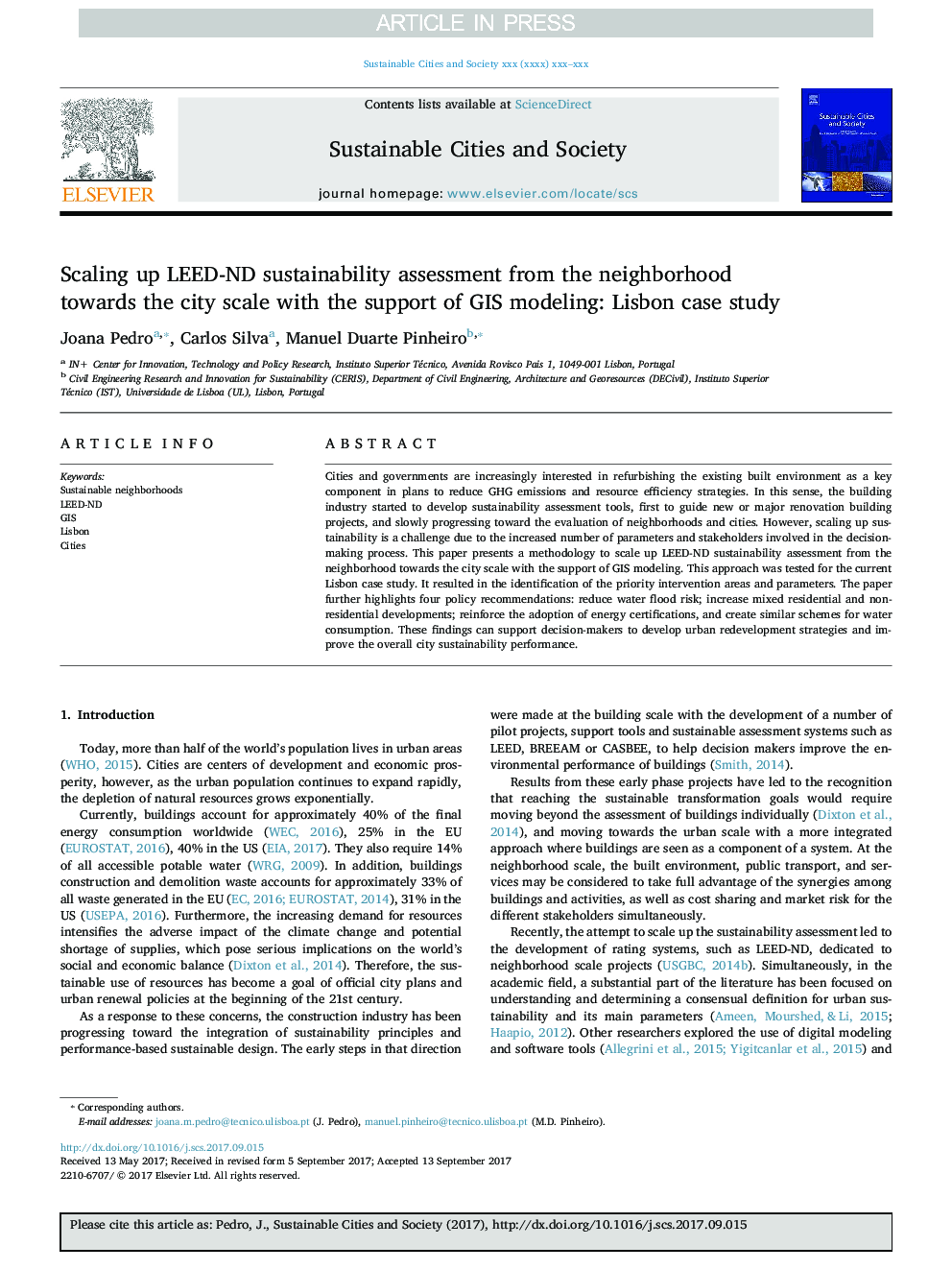| Article ID | Journal | Published Year | Pages | File Type |
|---|---|---|---|---|
| 6775380 | Sustainable Cities and Society | 2018 | 11 Pages |
Abstract
Cities and governments are increasingly interested in refurbishing the existing built environment as a key component in plans to reduce GHG emissions and resource efficiency strategies. In this sense, the building industry started to develop sustainability assessment tools, first to guide new or major renovation building projects, and slowly progressing toward the evaluation of neighborhoods and cities. However, scaling up sustainability is a challenge due to the increased number of parameters and stakeholders involved in the decision-making process. This paper presents a methodology to scale up LEED-ND sustainability assessment from the neighborhood towards the city scale with the support of GIS modeling. This approach was tested for the current Lisbon case study. It resulted in the identification of the priority intervention areas and parameters. The paper further highlights four policy recommendations: reduce water flood risk; increase mixed residential and non-residential developments; reinforce the adoption of energy certifications, and create similar schemes for water consumption. These findings can support decision-makers to develop urban redevelopment strategies and improve the overall city sustainability performance.
Related Topics
Physical Sciences and Engineering
Energy
Renewable Energy, Sustainability and the Environment
Authors
Joana Pedro, Carlos Silva, Manuel Duarte Pinheiro,
